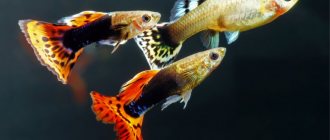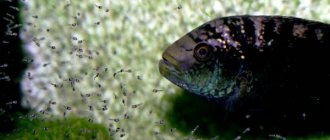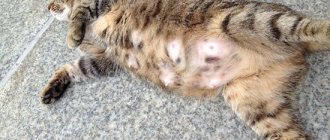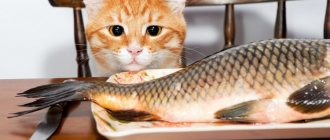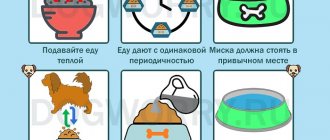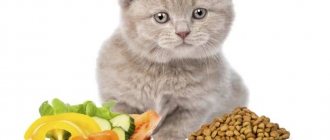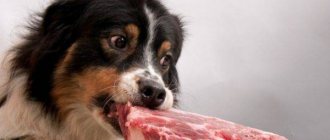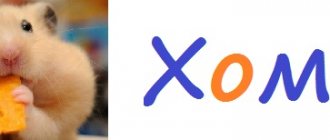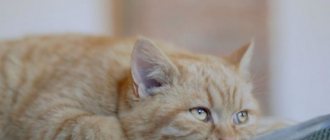What to feed guuppies
In artificial reservoirs, the diet of colorful inhabitants should be varied and nutritious. In nature, viviparous individuals eat the smallest aquatic representatives - crustaceans, ciliates, mosquito larvae, fry of other fish species, and sometimes feast on algae. Therefore, the main attention in proper nutrition of guppies should be given to living organisms with a high protein content:
- tubifex;
- bloodworm;
- Artemia;
- Daphnia;
- shrimp.
At home, you can pamper your guppies with finely chopped earthworms, chopped small fish and squid fillets. During winter, such delicacies are stored in advance by pre-portion freezing. Unpretentious inhabitants of the aquarium also need plant food for proper intestinal function, ready-made vitamin supplements to strengthen the immune system and dry feeding.
Fry
Baby guppies are not much different from their parents, except in size. But this circumstance is also a temporary phenomenon. The fry grow very quickly and already on the second day after birth they are able to eat from the “adult table”. Only the size of the food should not exceed the size of the mouth of the fish itself. The best option is a dry mixture of microplankton for breeding, which is prepared in advance, or “live dust” - ciliates and microscopic worms.
In the first week, fast-growing babies are well served with nutritious protein foods that provide a lot of energy - brine shrimp. After 7–8 days, the stronger fry are fed with crushed cyclops, tubifex and bloodworms.
For proper balanced nutrition of the fry, special dry food must be introduced. This will allow:
- diversify your diet;
- increase your pet’s immunity with additional vitamins and minerals;
- receive adequate nutrition appropriate for age;
- make life easier for the owner by reducing the time for preparing food.
If the food particles are not too small in your opinion, it is recommended to knead them. Prepared food is not able to satisfy all the requirements of a growing body, and its frequent consumption can lead to infertility and loss of bright color. Dry food should be used no more than once a week and only a month after birth.
As an alternative to live and dry food for guppies, the cubs are given homemade substitutes that they prepare themselves: egg yolk, curdled milk, cheese.
- A chicken egg is boiled hard. The yolk is kneaded in a spoon and wrapped in clean gauze. The resulting bag is dipped into water.
- The finished yogurt is poured with boiling water. The resulting dense clot is cleared of whey and used in the same way.
- Hard cheese without additives is grated on a fine grater and dried.
After such complementary feeding, the water in the aquarium quickly deteriorates and requires frequent changes.
Adults
Plant nutrition is also of no small importance for the physical formation of pets, full growth and development of internal organs. The feeding of adult fish must include crushed nettle, parsley, lettuce, cucumber, and zucchini, pre-treated with boiling water. Plant carbohydrates prevent obesity from eating animal foods. Aquarium algae - Echinodorus, Java moss - will be irreplaceable.
It is recommended to feed guppy fish once every 14 days by mixing dry granules with liquid vitamins A, D, E or fish oil. 3-4 drops are enough. Ground rolled oats and boiled semolina will help stabilize the digestive system. You can give boiled chicken breast, beef liver and heart.
Diet restrictions
Despite the recommendations of experts, they feed their pets with tubifex worms and dry daphnia with caution and in limited quantities. The former are dangerous due to the high content of pathogenic bacteria, the latter due to their low nutritional value.
Attention! Food products prepared independently or obtained from nature must first undergo the necessary processing.
Required Power Components
A lack of calcium (Ca) in the diet and water can be critical. Leads to disturbances in the development of the skeleton, fins, and scales (rickets).
Squirrels
Protein (protein) is a set of amino acids. Serves to produce energy and form body tissues. In the diet - 25–35%. For fry and pregnant females - 40–50%. Source: animal food. Vegetable proteins are almost not digestible by fish.
Fats
Fats - saturated and unsaturated fatty acids, their compounds. Unsaturated fats are not produced in the body of fish. “Spare” source of energy, the main material for metabolism. In the diet of aquarium fish - 4–8%. Lack of fat in food weakens the immune system and causes disruption of the central nervous system. Source: animal food.
Carbohydrates
Carbohydrates (sugars) are compounds made of oxygen, carbon and hydrogen. A source of “fast” energy. In the diet - up to 20%, up to 6 mg per gram of fish weight. Higher sugars are partially absorbed by omnivorous fish. Fiber (cellulose) is not digestible, but is necessary for the movement of food masses through the intestinal tract. A lack of sugars leads to gastrointestinal diseases, the formation of ulcers, and weakened immunity.
Micro- and macroelements
The presence of macroelements (content in the body from 2 mg/kg) and microelements (up to 2 mg/kg) is ensured by maintaining the required level of water hardness and proper nutrition.
Vitamins
Vitamins are a group of compounds that ensure metabolism in the body. Lack of vitamins (avitaminosis) is externally manifested in abnormal behavior, stunted growth and dull coloring. Vitamin deficiency causes irreparable damage to the fry.
| Name | What is he responsible for? | Symptoms and consequences of vitamin deficiency |
| B | Obtaining energy from carbon compounds. Nutrition of the central nervous system. | Decreased activity. Convulsions. Lack of appetite. Stopping growth. |
| B2 | Protein absorption. Nutrition of the central nervous system | Internal bleeding. Central nervous system disorder with motor dysfunction |
| B5 (PP) | Enzyme synthesis | Terminal deformation |
| B6 | Functioning of the nervous system | Motor function disorder |
| B12 | Function of the digestive system. Hemoglobin synthesis | Anemia. Decreased activity. Stopping growth |
| A | Vision. Height. Protection of the mucous membrane. Sexual function | External changes in the eyes, bulging eyes. Stopping growth. Internal bleeding |
| C | Growth and restoration of the skeleton. Immunity | Deformation of terminals. Lack of disease resistance |
| D3 | Absorption of calcium and phosphorus | Skeletal deformity, rickets |
| E | Digestion and synthesis of fats | Fatty liver. sterility |
| H | Tissue development | Stopping growth. Lack of appetite. Convulsions |
| K | Blood composition | Wounds don't heal. Liver damage |
| Kholin | Fat processing | Fatty liver. General obesity |
How many times a day should you feed your guppies?
The health and development of fry, and then adults, directly depends not only on the quality of nutrition, but also on its regime. To begin with, the newly born babies are fed 5-6 times a day in small portions: they are given as much as they eat within a minute.
The uneaten amount of food should not be allowed to settle to the bottom, otherwise, if the residues decompose in the aquatic environment, an increased nitrogen content and toxic ammonia will form, which leads to the premature death of the offspring. It will be very useful to change the water daily with liquid from the parents’ aquarium and have constant lighting.
After a week, they switch to four meals a day. After 1.5–2 months, a constant regimen is established, as in adults, 2–3 meals a day every 4 hours.
Important! It is forbidden to feed guppies often. It is useful to practice fasting days, when one day a week food is not served at all.
Feed quantity
For a flock of 10 guppies, a pinch of crushed dry food or flakes is enough. For an aquarium, 150 liters with fifty inhabitants is what is eaten within a minute.
A portion of live food is more difficult to determine. Only experimentally based on the appearance of the fish. The fry are fed unlimitedly.
Signs of overeating in guppies
- The male has a swollen abdomen. It is difficult to judge females due to possible pregnancy.
- The feces do not fall off, but are drawn to the fish.
- The water spoils and algae grows.
Signs of overeating
To avoid undesirable consequences, you need to feed the guppies correctly, based on the size of the fish and the weight of the food. The weight of food in the first days of life should exceed the parameters of the fish by 60–70%. After 8–10 weeks, food exceeds body weight by only 30%.
When initial symptoms of overeating appear, it is recommended to reduce the amount of food to 7–10%, reduce the caloric content of food, and then arrange a fasting day:
- if the pet’s abdominal cavity has noticeably increased in size;
- a string of feces trails from the guppies.
Features of the guppy diet
Newborns are fed protein (animal) foods. After a week, add plant food to the diet. At one month of age, protein and vegetable feed make up 70/30%, respectively. Food for guppy from one year old - 60/40%.
In an aquarium, fish compensate for the lack of plant food by pinching soft leaves and young shoots of plants. Algae are actively eaten. Especially on fasting days.
You cannot give your guppies only a certain type of food. Diversify your diet.
Popular feed manufacturers
In stores you can purchase goods for every taste and budget. When purchasing, you should pay attention to its composition and the content of food dyes in the product, which can affect the change in the natural color of your pets.
Brands such as Sera, Zoomir and Tetra have proven themselves not only as foods that are highly nutritious and provide balanced nutrition, but also increase and maintain the brightness of the natural color of the fish. They are highly digestible and do not cloud the water.
It must be remembered that proper feeding of guppies in an aquarium from the first days of life is the key to the health and beauty of adult individuals. If you liked the article, leave comments and share a link to it on social networks.
How to feed
The main mistake of beginning aquarists is overfeeding. Excess food in the aquarium leads to a number of consequences:
- deterioration of water condition;
- obesity;
- death from overeating or poisoning.
It is considered normal if the food is eaten before reaching the bottom. Remove excess food with a net or siphon immediately after feeding. The size of the grains should correspond to the type and age of the fish. Large adults eat large pieces. Juveniles - live dust or food particles not exceeding the size of the fry's eye.
During the spawning season, feed less food. Two weeks before breeding, feed the future parents with protein foods.
How much to give
Feed calculations are based on the pet's weight: no more than 5% of the total weight. A universal rule: food should be eaten within 3-5 minutes without leaving any residue.
These fish are quite omnivorous and do not require special housing or feeding conditions. They happily eat, in addition to living organisms, meat, finely chopped or scraped, and fillets of sea inhabitants. They also love cereals and various plant foods. But, under no circumstances, otherwise they will get sick and stop reproducing. They can easily survive a week-long hunger strike.
All these feeds need to be alternated, but live ones should still predominate. The brightness of the color of male guppies depends on this. The size of the food should be small, accessible to small fish. Experts distinguish three types of food for these fish:
- live food bred under artificial conditions, such as bloodworms, daphnia, ciliates;
- all feed;
- other food such as scraped cheese, meat and the like.
With proper care and good, proper maintenance, these wonderful creatures will delight their owner with activity, liveliness, and a riot of colors, helping to relax after a busy day. An aquarium with guppies is well suited for families with children. The fish will produce healthy offspring, allowing you to observe the entire cycle of their development and replenish the aquarium with new colors.
An adult, healthy female guppy can give birth quite often - up to eight times a year. The number of fry can vary, reaching up to hundreds in old females. In addition, as you have already noticed, keeping guppies does not require large material and time costs, they do not need to be fed often, but they will bring you a lot of positive emotions.
